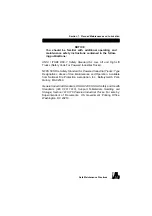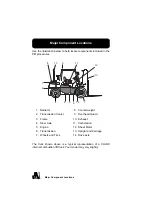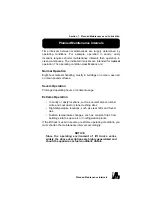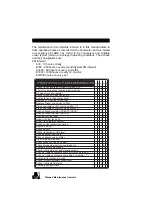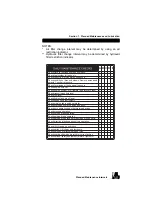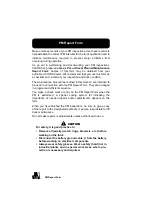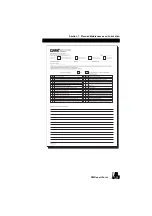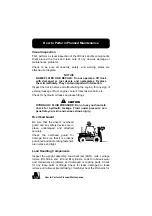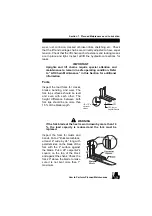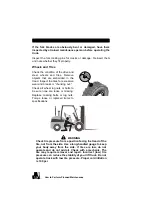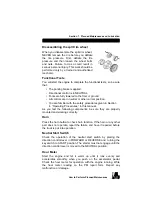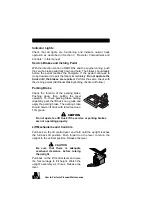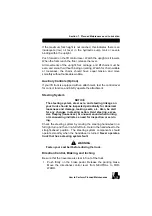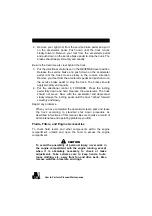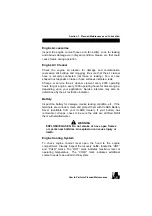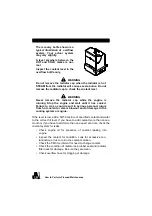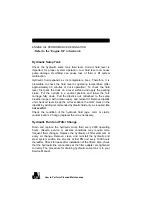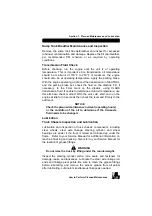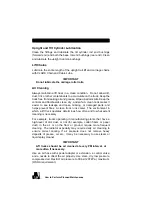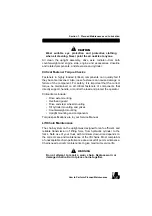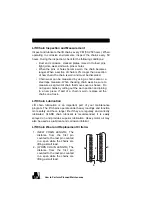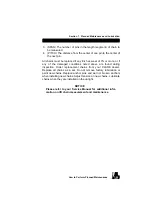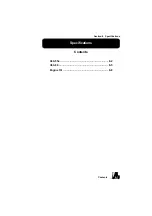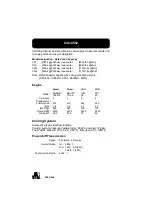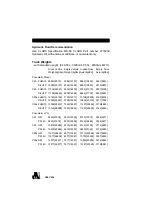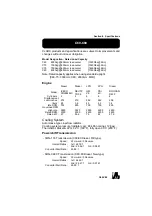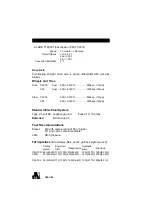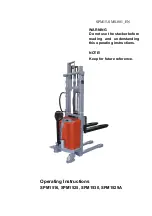
How to Perform Planned Maintenance
7-21
Section 7. Planned Maintenance and Lubrication
Engine Accessories
Inspect the engine coolant hoses and fan belt(s). Look for leaking
and obvious damage, worn (frayed) condition, breaks, etc. that could
cause failure during operation.
Engine Air Cleaner
Check the engine air cleaner for damage and contamination
(excessive dirt buildup and clogging). Be sure that the air cleaner
hose is securely connected (not loose or leaking). Fan or cone
shaped dust deposits on tube or hose surfaces indicate a leak.
Change or service the air cleaner element every 2000 operating
hours for gas engine, every 1000 operating hours for diesel engine,
depending upon your application. Service intervals may also be
determined by the air restriction indicator.
Battery
Inspect the battery for damage, cracks, leaking condition, etc. If the
terminals are corroded, clean and protect them with CLARK Battery
Saver (available from your CLARK dealer). If your battery has
removable cell caps, check to be sure the cells are all filled. Refill
them with distilled water.
WARNING
!
EXPLOSIVE GASES: Do not smoke or have open flames
or sparks near batteries. An explosion can cause injury or
death.
Engine Cooling System
To check engine coolant level open the hood to the engine
compartment. Visually inspect the recovery bottle, locate the “HOT”
and “COLD” marks. The “HOT” mark indicates maximum level at
operating temperature. The “COLD” mark indicates additional
coolant needs to be added to the system.
Summary of Contents for C40D
Page 2: ......
Page 6: ...iv ...
Page 16: ...1 4 Seat Belts Seat Belts ALWAYS BUCKLE UP Seat belts can reduce injuries ...
Page 30: ......
Page 90: ......
Page 109: ...PM Report Form 7 13 Section 7 Planned Maintenance and Lubrication ...
Page 126: ......
Page 136: ......

